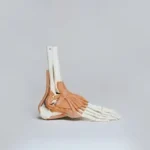- Decapitation dreams represent a loss of control over our thoughts and decision-making abilities, reflecting feelings of overwhelm and insignificance.
- They symbolize a disconnection between our intellect and our emotions, leading to confusion and internal conflict.
- Decapitation dreams can also indicate underlying anxiety, stress, and low self-esteem.
- Keeping a dream journal and seeking professional help can aid in understanding the symbolism and processing the emotions related to decapitation dreams.
Decapitation dreams can be intense and unsettling, but they offer valuable insights into our subconscious. To gain a deeper understanding of ourselves, it’s crucial to comprehend the symbolism behind these dreams. Let’s delve into the meaning of decapitation dreams and how they can support personal growth and self-discovery.
The Symbolism of Decapitation Dreams
1. Relationship to Intellect and Consciousness
In decapitation dreams, the head represents our intellect and consciousness. Losing one’s head signifies a loss of control over our thoughts and decision-making abilities. It may symbolize a feeling of being overwhelmed with responsibilities or a sense of insignificance in our personal or professional life. These dreams are a reflection of our subconscious mind questioning our ability to make choices and maintain control over our own lives.
2. Connection to Ego and Self-Identity
The head is also associated with our ego and self-identity. Losing one’s head in a dream may indicate a feeling of unimportance or insignificance. It could symbolize a fear of losing our sense of self or not being recognized for who we truly are. These dreams highlight the importance of maintaining a strong sense of self-worth and embracing our authentic identity.
3. Representation of Loss of Control and Insignificance
Decapitation dreams can also symbolize a loss of control and feelings of insignificance. The severing of the head represents a dramatic loss of power and authority. These dreams may occur during times when we feel powerless or overwhelmed by external circumstances. The dream is urging us to regain control over our lives and assert ourselves in order to overcome obstacles.
4. Division between Mental and Physical Self
The act of separating the head from the body in decapitation dreams represents a division between our mental and physical selves. The head represents our thoughts, emotions, and consciousness, while the body symbolizes the physical world and our actions within it. These dreams indicate a need to examine our thoughts, emotions, and behaviors to identify areas where we may need to make changes or separate ourselves from negative patterns.
By understanding the symbolism of decapitation dreams, we can gain deeper insights into our subconscious thoughts and emotions. These dreams encourage us to reflect on our sense of control, identity, and connection to others. It is important to remember that these dreams are not literal predictions of violence or harm but rather symbolic representations of our innermost thoughts and fears.
| Symbolic Meaning |
|---|
| Relationship to Intellect and Consciousness |
| Connection to Ego and Self-Identity |
| Representation of Loss of Control and Insignificance |
| Division between Mental and Physical Self |
In decapitation dreams, we are asked to reflect on our control over our thoughts and actions, the impact of our ego on our self-identity, feelings of insignificance in the face of external forces, and the disconnect between our mind and body. By delving into these symbolic meanings, we can gain a better understanding of ourselves and make positive changes in our lives.
Common Dream Scenarios and Their Interpretations

Decapitation dreams can take many different forms, with each scenario offering valuable insights into our subconscious thoughts and emotions. In this section, we will explore some common scenarios that people may experience in their decapitation dreams. By understanding these scenarios, we can gain a deeper understanding of the underlying symbolism and meanings behind these unsettling dreams.
1. Self-Decapitation
- Scenario:
In this type of dream, the dreamer sees themselves cutting off their own head, usually with ease and without pain.
Symbolism:
Self-decapitation dreams can symbolize a desire for self-punishment or a need to take extreme measures to take control of one’s life. It could be an expression of guilt or shame about something the dreamer has done or a reflection of their struggle with a sense of helplessness or powerlessness in their waking life.
Example:
A person who recently lost their job or ended a relationship may have a self-decapitation dream as a way to punish themselves for what they perceive as a personal failure. Alternatively, someone who feels trapped or stuck in a situation may have this dream to symbolize taking control of their life.
What to Do:
Reflect on your current life situation and any recent events that may have triggered this dream. Consider your emotions during the dream and whether any underlying feelings of guilt, shame, or helplessness are present. If these dreams persist or cause distress, it may be helpful to talk to a therapist or counselor to further explore the emotions and underlying issues.
2. Witnessing Decapitation of Loved Ones
- Scenario:
In this scenario, the dreamer witnesses someone they love being decapitated.
Symbolism:
Dreams where loved ones are decapitated can symbolize feelings of loss, fear, or powerlessness. It may suggest a fear of losing someone close to you or a desire to distance yourself from a certain person or situation. It could also represent feelings of guilt or responsibility for something harmful happening to that person.
Example:
Dreaming of a decapitated loved one may be triggered by a recent loss or the fear of losing someone important in your waking life. It might reflect your emotional struggles or guilt related to your relationship with that person.
What to Do:
Acknowledge the emotions that arise from witnessing such a distressing dream. Reflect on your relationship with the person in question and any unresolved issues or unexpressed feelings. If the dream continues to affect you or causes significant distress, seeking the guidance of a therapist can help you process your emotions and gain a deeper understanding of the dream’s significance.
3. Animal Decapitation
- Scenario:
This scenario involves dreams where animals, whether domestic, wild, or farm animals, are beheaded.
Symbolism:
Decapitation of animals in dreams can represent various things depending on the context. It might signify a sense of powerlessness, disconnection from nature, guilt, or shame related to animal harm. It could also highlight feelings of being confined or trapped in some aspect of life.
Example:
Dreaming of beheaded domestic animals, such as cats or dogs, may be linked to the loss of a beloved pet or a sense of guilt related to their death. Beheaded wild animals, like lions or bears, may symbolize feelings of vulnerability, fear, or powerlessness. Decapitated farm animals, such as cows or pigs, may represent guilt or shame about harming animals or feeling trapped in certain aspects of life.
What to Do:
Reflect on your emotions and any specific details related to the animal decapitation dream. Consider your personal beliefs and attitudes towards animals. If the dream triggers strong emotions or makes you question your actions and behaviors towards animals, it may be beneficial to explore these feelings with a therapist or counselor who can provide guidance and support.
4. Beheaded Creatures
- Scenario:
This scenario involves dreams where creatures, which could include monsters, mythical creatures, or harmless animals, are beheaded.
Symbolism:
Beheaded creatures may symbolize a feeling of powerlessness in dealing with certain situations. It can suggest vulnerability or a loss of clarity and direction. It might also reflect a struggle to reconcile primal instincts or a fear of losing control.
Example:
Dreaming of beheaded creatures, such as monsters or mythical beings, can suggest underlying fears of powerlessness, vulnerability, or a loss of control. It might also indicate a need to challenge conventional thinking or beliefs.
What to Do:
Processing emotions related to beheaded creature dreams is essential. Reflect on the symbolism and emotions evoked in the dream. Consider your current life circumstances and whether any underlying fears or vulnerabilities are contributing to the dream. Engaging in self-reflection or seeking the guidance of a therapist can help you make sense of the dream’s meaning and explore any underlying issues.
Interpretation of Decapitation Dreams Based on Different Cultures and Religions

Dreams about decapitation have long intrigued and fascinated people from different cultures and religions. The symbolic meaning of decapitation can vary greatly, with different interpretations and associations depending on cultural, historical, and spiritual beliefs. In this section, we will explore how decapitation dreams are interpreted in different cultures and religions, shedding light on the diverse symbolism of this intriguing dream.
1. Association with Death and Rebirth
In many cultures, decapitation is closely associated with both death and rebirth. The violent act of decapitation represents the end of one phase or aspect of life and the beginning of another. It symbolizes a transformative process, where something old and no longer needed is severed to make way for new growth.
Celtic Traditions
In Celtic mythology, the head is believed to be the source of power for humans and animals. Warriors would often detach the heads of their enemies and display them as a sign of triumph. In this context, decapitation dreams could symbolize power and victory or the strength to overcome obstacles.
Hinduism
In Hindu mythology, decapitation is linked to the concept of spiritual enlightenment and rebirth. Lord Shiva, a prominent deity in Hinduism, is often depicted with a necklace of skulls around his neck, representing the continuous cycle of birth and death. Losing one’s head in a dream may signify shedding the ego or false self in order to access deeper levels of consciousness and truth.
Greek Mythology
In Greek mythology, decapitation is often associated with the story of Medusa. Medusa was a monster with snakes for hair whose gaze could turn people to stone. Her head was eventually severed by the hero Perseus, who used it as a weapon against his enemies. Decapitation dreams in the context of Greek mythology could represent the ability to conquer fear or face one’s nemesis.
Mexican Culture
In Mexican culture, the Day of the Dead is a celebration that honors deceased loved ones. The display of skulls and skeleton motifs during this festival represents the cycle of life and death, and the idea that death is not an ending but a continuation. Decapitation dreams in this context may signify a connection to one’s ancestors or a deep sense of spirituality.
2. Shedding the Ego in Spiritual Traditions
Decapitation is also often associated with spiritual traditions that emphasize the shedding of the ego or false self in order to achieve higher states of consciousness and self-realization.
Buddhism
In Buddhism, decapitation can be seen as a metaphorical act of severing attachment to worldly desires, attachments, and egoic identification. This act of letting go leads to spiritual liberation and awakening. Decapitation dreams in a Buddhist context may symbolize a call to let go of ego-driven desires and attachments and embrace a more authentic and liberated way of being.
Sufism
In Sufism, a mystical branch of Islam, decapitation symbolizes the annihilation of the self (nafs) in order to become one with God. It represents the shedding of egoic illusions and the awakening to one’s true nature. Decapitation dreams in Sufism can be seen as a transformative experience, where the dreamer is being called to transcend their limited sense of self and merge with divine consciousness.
3. Symbolism in Different Religions
Different religious traditions also offer unique interpretations of decapitation dreams based on their beliefs and teachings.
Christianity
In Christianity, decapitation can be seen as a symbol of martyrdom and sacrifice for one’s faith. It represents the ultimate act of devotion and surrender to God’s will. Decapitation dreams in a Christian context may signify a call to let go of worldly attachments, sacrifice one’s egoic desires, and dedicate oneself to a higher spiritual purpose.
Islamic Traditions
In Islamic traditions, decapitation is associated with punishment and divine justice. It can symbolize the consequences of one’s actions and the need for repentance. Decapitation dreams in an Islamic context may reflect a sense of guilt or fear of punishment for one’s transgressions or a call to seek forgiveness and atonement.
4. Cultural and Religious Interpretations – Summary Table
| Culture/Religion | Interpretation |
|---|---|
| Celtic Traditions | Symbol of power and victory; overcoming obstacles |
| Hinduism | Cycle of birth and death; shedding the ego for spiritual enlightenment |
| Greek Mythology | Conquering fear or facing one’s nemesis |
| Mexican Culture | Connection to ancestors; embracing spirituality |
| Buddhism | Letting go of egoic desires and attachments for spiritual liberation |
| Sufism | Merging with divine consciousness through shedding the self |
| Christianity | Sacrifice and devotion to God’s will |
| Islamic Traditions | Punishment, consequences of actions, seeking forgiveness |
Decapitation dreams hold profound meaning in different cultures and religions. They often evoke themes such as death, rebirth, shedding the ego, sacrifice, and spirituality. By exploring the interpretations offered by different traditions, individuals can gain insights into their own spiritual journey and personal growth.
It is important to note that dream interpretation is subjective, and individuals should rely on their own intuition and personal associations when exploring the meanings behind their decapitation dreams. Consulting with cultural or spiritual leaders, therapists, or dream interpreters can also provide valuable guidance in understanding the unique symbolism of these dreams.
Psychological and Emotional Analysis

Decapitation dreams can be incredibly unsettling, leaving individuals feeling fearful, confused, and disturbed. These dreams often contain deeply rooted symbolism and meaning that can provide insight into our subconscious thoughts and emotions. In this section, we will explore the psychological and emotional analysis of decapitation dreams, shedding light on the role of fear, powerlessness, and confusion that these dreams may represent.
1. The Role of Fear, Powerlessness, and Confusion
Decapitation dreams often evoke intense fear and anxiety due to the violent nature of the dream imagery. The act of decapitation is a dramatic severing of the head from the body, symbolizing a loss of control or power. When we dream of losing our heads or witnessing others being decapitated, it can signify a deep sense of powerlessness or helplessness in our waking lives.
These dreams may reflect feelings of being overwhelmed by external circumstances or internal struggles that we believe are beyond our control. We may feel as though we are at the mercy of others or that we lack the ability to make decisions and assert ourselves effectively. This loss of control can be a source of anxiety and confusion.
Furthermore, decapitation dreams may indicate a disconnection between our thoughts and emotions. The head is often associated with reason, intellect, and consciousness, while the body represents emotions and instincts. When these two aspects become severed in a dream, it suggests a lack of integration between our rational mind and emotional self. This can lead to a sense of confusion and internal conflict.
2. Reflections of Anxiety, Stress, and Low Self-Esteem
Decapitation dreams can also be an expression of underlying anxiety, stress, and low self-esteem. These dreams may arise from unresolved emotional conflicts or a fear of making wrong choices. The fear of losing our heads in these dreams may represent a worry about losing control over our thoughts, emotions, or decisions.
Additionally, these dreams may reveal feelings of low self-esteem or insignificance. Losing one’s head can symbolize a loss of identity or a sense of unimportance. It may reflect a lack of confidence in our abilities to navigate through life or make meaningful choices.
3. The Importance of Dream Journaling and Professional Help
Interpreting decapitation dreams can be a complex and personal process. To gain a deeper understanding of the underlying emotions and symbolism, it is helpful to keep a dream journal. By recording the details of each dream, including emotions, themes, and any real-life events that may have influenced the dream, we can begin to identify patterns and uncover the deeper meaning behind our dreams.
Seeking professional help from a therapist or dream interpreter can also be beneficial for those who struggle to interpret their dreams or experience distressing emotions related to their dreams. These professionals can provide guidance in exploring the psychological and emotional significance of decapitation dreams and support individuals in navigating any underlying issues.
Conclusion
If you have experienced decapitation dreams, know that you are not alone. These dreams can be disturbing, but they offer opportunities for introspection and growth. By exploring the symbolism behind these dreams and identifying any underlying emotional issues, you can take steps towards greater self-awareness and personal empowerment. Whether through talking with a trusted friend, seeking professional counseling, or simply reflecting on your thoughts and feelings, there are many ways to process the emotions related to decapitation dreams. Remember to approach this process with kindness and patience for yourself, as it can be a difficult but ultimately rewarding journey towards greater understanding of oneself.










Leave a Reply